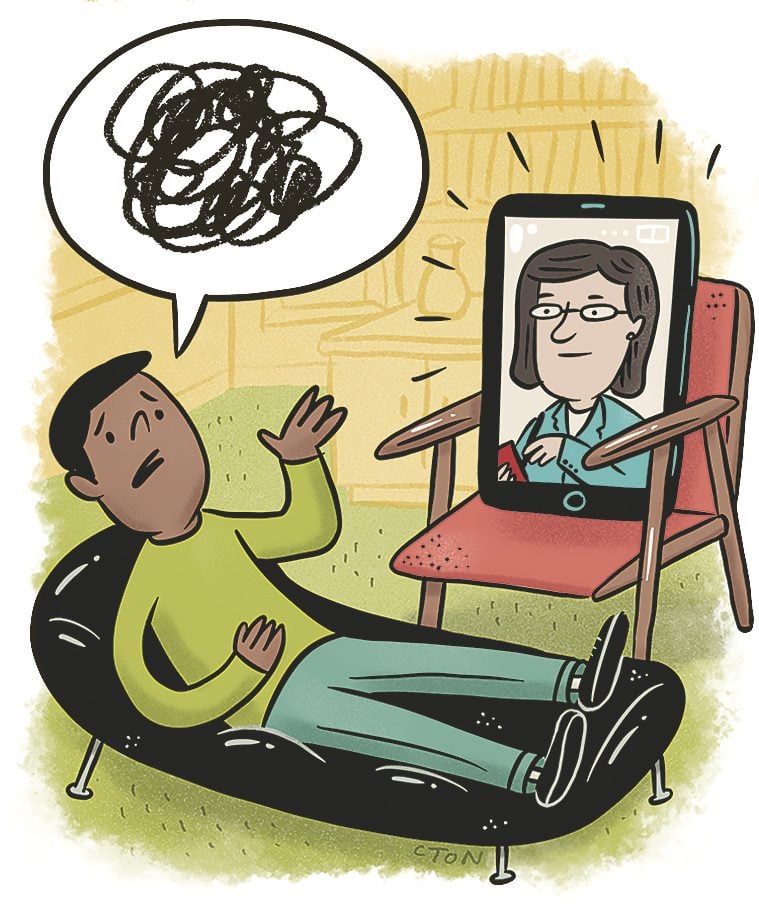13 Things You Didn’t Know About Talk Therapy
A 2016 survey by the Centre for Addiction and Mental Health found that among respondents who had experienced anxiety or depression, 40 per cent were too ashamed to seek medical help.

The Truth About Talk Therapy
1. Therapy is for anyone, any time. “Therapy can enrich your life by making you understand why you repeat certain patterns,” says Carrie Foster, a Montreal psychotherapist. “You don’t need to be in crisis, though that’s when most people come in.”
2. As the pandemic has pushed therapy online, studies have shown patients are just as satisfied with a video call instead of an in-office visit.
3. Try to make sure you’re visible during a video call, and that you’re in a private space with no disruptions. “Your body language, facial expressions and voice intonation give your therapist important clues about where you’re at,” says Foster.
4. Therapy costs vary greatly depending on region and type of service, but range between $30 and $240 an hour. For the 60 per cent of Canadians with private health insurance, plans may cover some or all of the cost up to an annual maximum. “Many counsellors offer sliding scale fees based on your income,” says Victoria therapist Richard Routledge.
5. Persistent stigma prevents many from seeking the help they need. A 2016 survey by the Centre for Addiction and Mental Health found that among respondents who had experienced anxiety or depression, 40 per cent were too ashamed to seek medical help.
6. There are over 50 types of psychotherapy. One of the most common, cognitive behavioural therapy, is often recommended for mild to moderate anxiety and depression.
7. Other common types of therapy include coaching, which motivates you toward a specific, performance-oriented goal, and psychodynamic therapy, in which you talk about your past, your dreams and your fantasies to uncover the thought patterns that guide your behaviour.
8. The best way to find a therapist is through word of mouth—ask for a recommendation from a friend or your doctor. “Many counsellors offer a free brief consultation over the phone so that you can get a feel for their approach,” says Foster.
9. Digital therapy platforms like BetterHelp, a smartphone app that connects you to licensed therapists via text messaging and video calls, saw new sign-ups double in the first few months of the pandemic, compared to the year before.
10. It can take several tries to find the right therapist—don’t be discouraged if you don’t jibe with the first one you meet. “You can simply say that it’s not a good fit,” says Foster.
11. Don’t expect your therapist to tell you what to do about a problem. “It’s not our place,” says Routledge. “Therapy is about tapping into a person’s own self-knowledge so that you can make your own decisions.”
12. There’s no need to apologize if you don’t have a specific therapy goal. “Our job as counsellors is to put all those pieces together,” says Routledge. “As long as therapy is useful for you, that’s why we’re here.”
13. If you need immediate support, text WELLNESS to 741741 to access Wellness Together Canada’s free, confidential mental health resources and counselling services, funded by the government as a response to the pandemic. Find out more at ca.portal.gs.
Next, discover how one Toronto storefront provides accessible and affordable therapy.



